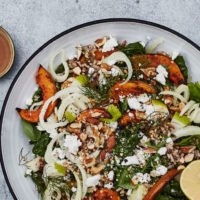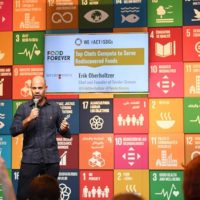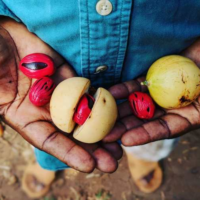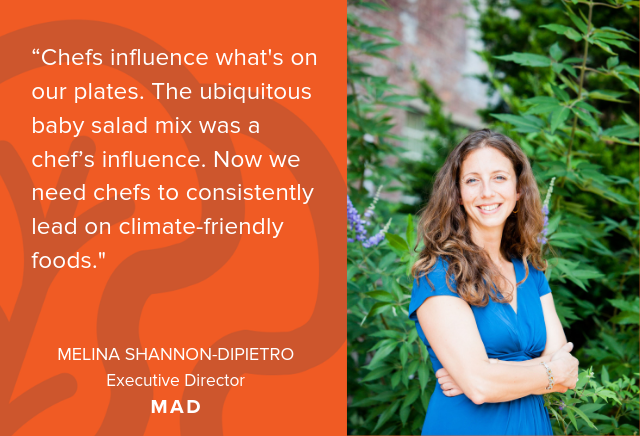
Food+Tech Connect and The Future Market are hosting Biodiversity: The Intersection of Taste & Sustainability, an editorial series featuring interviews with over 45 leading food industry CEOs, executives, farmers, investors and researchers on the role of biodiversity in the food industry. Read all of the interviews here.
MAD believes chefs have the power to transform our food system. Founded by restaurant noma’s René Redzepi, the organization gives chefs and restaurateurs the knowledge, skills and community they need to drive real change in their restaurants and communities through its Symposium, programming, publications and media. Celebrating the abundance and unique flavors of the natural world has always been a priority of Redzepi’s, as evidenced by his forage-driven menus, so it is no surprise that biodiversity is a key priority for the organization. In 2017, it even launched VILD MAD, or Wild Food, an app and program to help chefs and young people learn about foraging for food.
Below, I speak with Melina Shannon-DiPietro, executive director of MAD, about how the organization is creating a global community of chefs who are leaders in sustainability and biodiversity.
______________________
Danielle Gould: Is biodiversity a priority for MAD? If so, how and why?
Melina Shannon-DiPietro: One of MAD’s priorities, a pillar of its organization, is giving the hospitality industry the skills, approaches and perspectives needed to proactively lead on environmental sustainability in their kitchens and outside the walls of their restaurants. Biodiversity is central to this approach, so much so that we created a program called VILD MAD or Wild Food (more details below).
Biodiversity builds resilience into our system; whereas over reliance on too few varieties or species leaves our food systems vulnerable to shocks and stresses. What’s more, biodiversity can source high-impact solution to health, environmental and food security challenges.
Chefs influence what’s on our plates. The ubiquitous baby salad mix was a chef’s influence. Now we need chefs to consistently lead on climate-friendly foods.
By creating a network of talented chefs and by fostering the conversations between the different actors in the food world, MAD focuses its attention on biodiversity both from the production and consumption perspective. Chefs are at the center.
DG: What is MAD doing or planning to do to promote biodiversity?
MSD: Our VILD MAD, or Wild Food, project, is the first program of its kind to bring chefs and young people out into nature to see biodiversity first hand; to give them encyclopedic knowledge to forage; and to support them with ongoing resources, from recipes to ecological approaches. The program includes “safaris” into nature in Denmark, as well as an app that is available, in English and Danish, no matter your geographic location. These tools expand one’s ideas of food and flavors and fosters curiosity about the natural environment.
DG: What is the business case for promoting a more biodiverse food system?
MSD: Customers are interested in health. Eating variations of the same four crops, served up in different ways, doesn’t make for good health. Companies who want to be serving tomorrow’s customers will be looking for greater diversification in their portfolio.
We know in financial investing, diversification makes good sense. That’s also the case in thinking about the world’s resources: we want the built-in intelligence of a sustainable food system.
We talk a lot now about artificial intelligence: at its best, it’s an intelligence that makes us smarter. Ecological systems already have innate intelligence; we’ve disrupted them in a way that makes them dumber. Now we need to reverse our approach to take advantage of their natural intelligence.
DG: What investments need to be made to create a more biodiverse food system?
MSD: We see chefs, and the hospitality industry at large, as one major lever for change; so, we’re investing – and inviting partners – to invest in MAD’s programming. Chefs face a major challenge as they are called on to be actors for the twenty-first century: they need the time and space to meet, collaborate and learn from experts in ecology, biodiversity and climate change.
In the EU, recent legislation means chefs and restaurants may need to take some foraged, biodiverse crops off their menus. We want government to more pro-actively partner with the restaurant industry before setting policy.
DG: Does your average customer care about biodiversity today? Why should they care? How do you (or will you) get them to care?
MSD: I’m struck by how much people do not know about biodiversity. When was the last time you took a walk in the forest? Tried to identify plants you see along a walk? Ate something you didn’t recognize?
What I see is each time we bring people out into nature for a foraging trip – whether it’s a kitchen stage, a Michelin-star chef or a Fortune 500 CEO – is that they see the land in a whole new way. They see nature as a larder; full of ingredients for our health and that are tasty, and they see more of our interdependence with nature, and they want to do more to protect it.
DG: What are the greatest challenges and opportunities your organization faces for creating a more biodiverse agricultural system, and what are you doing to overcome or capture them?
MSD: We need to move faster as a society. We need to build bridges and be more collaborative across sectors and break down the wall that’s grown between conventional and alternative agriculture.
In the next year, we’re getting more chefs out into nature to experience foraging and to understand biodiversity better. We are encouraging those same chefs to partner with farmers who can cultivate new and diverse crops; or harvest from the edges. We’ve already seen in Denmark that what chefs put on the plate ends up in the grocery stores.
DG: What are some of the most important things restaurants can do to support biodiversity?
MSD: Restaurants employ X percent of the population; they influence and shape culture; they speak to the media and to the general public. Restaurants can be a space for experimentation and discovery when it comes to new flavors, and of education for their teams and their customers.
DG: Are there certain products you would like to see more of in the food industry that would help promote a more biodiverse agricultural system?
MSD: My vision is too big for a computer screen. I’d like to see hundreds of varieties of maize, apples, tomatoes. I’d like to see thousands of partnerships like Dan Barber’s work with Cornell to build a better butternut squash.
I’d like to see the food industry – the people working in food systems – equipped with knowledge about ecosystems and agriculture. Knowledge changes everything.
DG: What is your vision for what a more biodiverse food system looks like in 10-15 years?
MSD: Let’s start by seeing more diversity in crops and in flavors, in supermarkets, school cafeterias, and restaurants across the board; let’s see more people out, and posting on Instagram the new foods and flavors they’ve discovered. Maybe some of them will go discover them in the wild.
Read all of our biodiversity interviews here and learn more about Biodiversity at The Future Market.
__________________________________
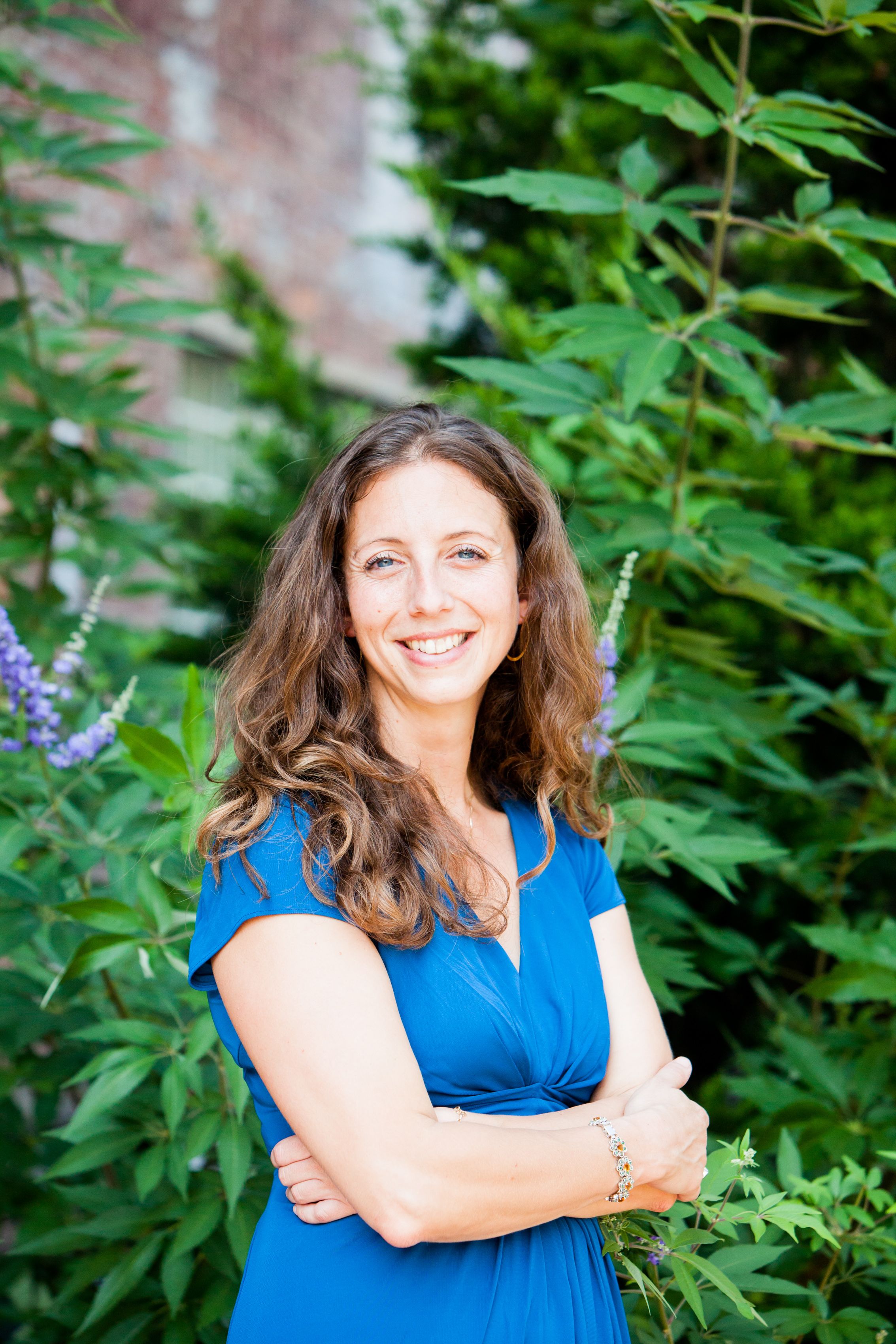 Melina Shannon-DiPietro, Executive Director of MAD
Melina Shannon-DiPietro, Executive Director of MAD
(Danish for food) the non-profit organization founded by René Redzepi of restaurant noma. MAD is transforming our food system by inspiring and empowering cooks, servers, and eaters to create sustainable change in their communities. Melina has been building programs, public dialogue, and partnerships that evolve our understanding of food, community, and environment for eighteen years. Prior to MAD, Melina was a director at Friends of the High Line, the organization that transformed an abandoned elevated rail line into one of New York City’s best-loved public parks. Melina began her work in food as co-founder of the Yale Sustainable Food Program. Originally from Albany, New York, Melina now lives in Copenhagen, Denmark.

